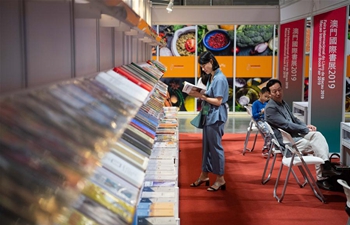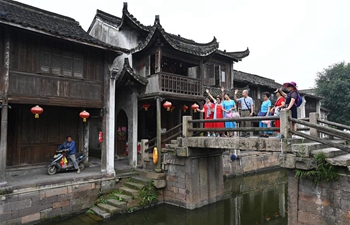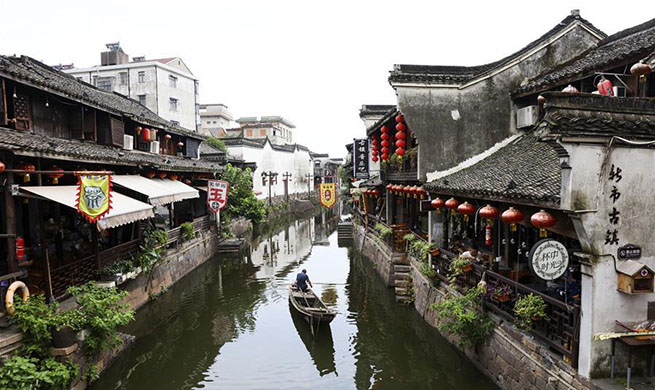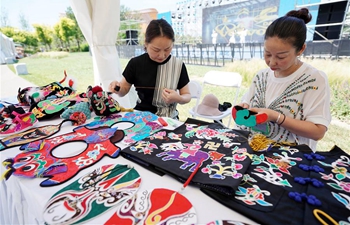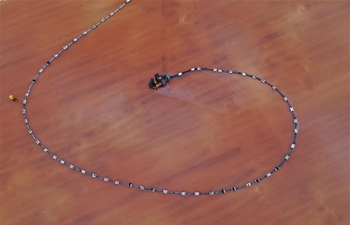SEOUL/TOKYO, July 5 (Xinhua) -- The South Korean government has officially dissolved a Japan-funded foundation in Seoul for the South Korean victims forced to work in the Japanese military brothels before and during World War II, local daily newspaper Joongang Ilbo reported Friday.
Confirming the earlier report by Japan's Asahi Shimbun newspaper, the South Korean media said the Reconciliation and Healing Foundation, set up under a 2015 agreement between Seoul and Tokyo, has been officially dissolved.
The foundation applied for the dissolution on June 17 and was notified Wednesday that the dissolution procedures were completed, according to the report.
For the actual dismissal of the foundation, some steps reportedly remained to be taken including the liquidation of the remaining assets.
The foundation was launched in July 2016 under the December 2015 agreement between Seoul and Tokyo to "finally and irreversibly" settle the issue over Korean women who were forced into sexual slavery under the 1910-45 Japanese colonization of the Korean Peninsula.
The agreement, reached under the previous Park Geun-hye government of South Korea, was criticized by the victims and civic groups here as Japan failed to sincerely apologize and take legal responsibility for the wartime atrocities.
The Moon Jae-in government of South Korea decided to dissolve the foundation in November last year, launching procedural steps toward the dissolution.
Soldiers from the Imperial Japanese Army during World War II coerced and kidnapped hundreds of thousands of girls and women and forced them to work as sex slaves, servicing Japanese soldiers at military brothels.
Euphemistically, these sex slaves have come to be known collectively as the "comfort women."
Most of these women, with renowned scholars putting the figure at 400,000, came from Asia including China and the Korean Peninsula.
In response, the Japanese government on Friday said it could never accept the decision by South Korea to dissolve the fund.
Japanese Deputy Chief Cabinet Secretary Yasutoshi Nishimura said Japan "can never accept" the decision (for the fund to be dissolved).
The Japanese government, through a diplomatic channel, reasserted its call for the South Korean government to implement the 2015 agreement.
Under the agreement, Japan provided the funds to the foundation to help former "comfort women" and their families, and, for Tokyo's part, the agreement reached was supposed to settle the issue "finally and irreversibly."
Seoul maintains that the "comfort women" issue has not been settled, as the will of the surviving victims has not been reflected.
Along with a long-running territorial dispute between Tokyo and Seoul, a South Korean top court ordering Japanese companies to pay compensation for forced wartime labor during its occupation of the Korean Peninsula has also added to bilateral disharmony.
Japan, meanwhile, has slapped tighter regulations of exports to South Korea of some materials used in semiconductors and displays, claiming that the reason for the move was for national security.
The South Korean government slammed the measures, calling them "economic retaliation."



